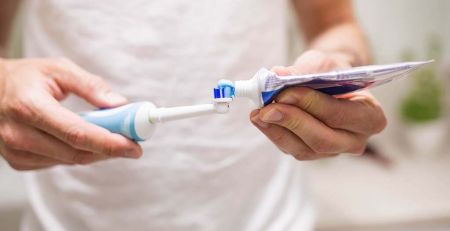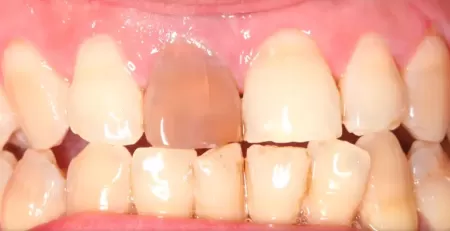The appearance of our teeth plays a significant role in our overall aesthetic appeal and self-confidence. However, various medical conditions and medications can have an impact on the appearance of our teeth. Learn how medical conditions and medications on teeth can effect your smile.
Understanding these connections can help individuals make informed decisions and seek appropriate dental care to maintain a healthy and attractive smile.
Table of Contents
Medical Conditions Affecting Teeth
Enamel Hypoplasia
Enamel hypoplasia is a dental condition that impacts the enamel, the hard, outermost layer that coats and protects our teeth.
This condition arises from an inadequate enamel formation, leading to several potential dental issues.
Teeth affected by enamel hypoplasia are more prone to discolouration, often exhibiting unusual colouring than healthy teeth.
Additionally, these teeth become more vulnerable to decay, as the thinner or defective enamel offers less resistance to the bacteria and acids that cause tooth decay.
Sensitivity is another common symptom, with patients experiencing discomfort or pain in response to hot, cold, or sweet foods and drinks due to the reduced protective layer of enamel.
The condition can vary in severity, affecting either a specific area of a tooth or encompassing multiple teeth, and its impact on dental health is significant, necessitating careful management and treatment.
Acid Reflux
Acid reflux, medically referred to as gastroesophageal reflux disease (GERD), is a condition where stomach acids abnormally flow back into the esophagus and can reach the mouth.
This backflow of acids poses a significant risk to dental health.
The erosive nature of these stomach acids can lead to the weakening and gradual wearing away of the enamel, the protective outer layer of teeth.
As a result, individuals suffering from acid reflux often experience increased tooth sensitivity, particularly when consuming hot, cold, or sweet substances.
Moreover, the teeth may undergo noticeable discolouration, deviating from their natural colour due to the acidic environment.
This enamel erosion also creates a conducive setting for tooth decay, as the protective barrier is compromised, leaving teeth more vulnerable to cavities and other dental problems.
The impact of GERD on oral health highlights the importance of managing this condition effectively to prevent or mitigate its adverse effects on the teeth.
Dry Mouth (Xerostomia)
Dry mouth, clinically known as xerostomia, is a prevalent condition often stemming from a range of medical conditions and as a side effect of various medications.
It is characterized by a significant reduction in saliva production, critical in maintaining oral health.
Saliva not only helps in the digestion of food but also acts as a natural cleanser for the teeth, helping to neutralize acids produced by bacteria in the mouth.
When saliva flow is reduced, individuals are at a heightened risk of developing tooth decay, as less saliva is available to wash away food particles and counteract acidic conditions conducive to cavity formation.
Additionally, the lack of adequate saliva can lead to gum disease, as bacteria thrive in a dry oral environment, potentially leading to inflammation and infection of the gum tissues.
Bad breath, or halitosis, is another common consequence of dry mouth, as the decreased saliva fails to effectively remove food particles and bacteria, which can produce foul odours.
The impact of xerostomia on dental health is significant, necessitating proactive measures and treatment to mitigate its effects and maintain oral hygiene.
How Medications on Teeth Can Effect You?
Antibiotics
Certain antibiotics, notably tetracycline and doxycycline, are known to have a detrimental effect on teeth, particularly during the developmental stages in children.
These medications can interfere with the normal process of tooth formation, resulting in discolouration.
This manifests as permanent stains on the teeth, which can range in colour from yellow to grey, significantly impacting the aesthetic appearance of one’s smile.
Discolouration typically occurs when these antibiotics are used when teeth are still developing, such as in childhood or during pregnancy, affecting the unborn child’s teeth.
The changes brought about by these antibiotics are not just superficial; they are ingrained in the tooth structure, making them challenging to remove through regular dental cleaning procedures.
This highlights the importance of considering the potential dental side effects when prescribing these antibiotics, especially for young children and pregnant women, to prevent long-term cosmetic and dental health issues.
Antihistamines
Certain antihistamines, commonly used to treat allergies, have a notable side effect that can indirectly impact dental health: they can cause dry mouth.
As previously discussed, dry mouth, or xerostomia, occurs when there is a decrease in saliva production.
Saliva is essential for maintaining oral health as it helps neutralize acids produced by bacteria, washing away food particles, and preventing decay.
When antihistamines reduce saliva flow, the mouth becomes more susceptible to dental issues.
This includes an increased risk of tooth decay, as the lack of saliva allows for the more accessible accumulation of plaque and food residues on teeth.
Additionally, the drier environment in the mouth can promote gum disease and lead to bad breath.
These potential dental complications underscore the importance of being aware of the oral side effects of antihistamines and taking appropriate measures, such as increased hydration and oral care, to mitigate their impact.
Chemotherapy Drugs
Chemotherapy drugs used in the treatment of cancer are known to cause a range of oral side effects that can significantly impact both the appearance and overall health of the mouth.
One common side effect is the development of mouth sores or ulcers.
These sores can be painful, making eating, speaking, or swallowing difficult.
Additionally, chemotherapy drugs often lead to dry mouth (xerostomia), where saliva production is reduced.
Saliva plays a crucial role in oral health by neutralizing acids, aiding digestion, and helping cleanse teeth and gums.
A reduction in saliva can increase the risk of tooth decay, gum disease and contribute to bad breath.
Furthermore, chemotherapy can weaken the immune system, making the mouth more susceptible to infections.
This can lead to various oral health issues, including gum infections and increased severity of existing dental problems.
These oral side effects of chemotherapy highlight the need for diligent oral care and regular dental check-ups during and after cancer treatment to maintain oral health and manage any complications that may arise.
Conclusion
Medical conditions and medications can significantly impact the appearance of teeth. Individuals must know these potential effects and take proactive steps to maintain oral health.
Regular dental visits, proper oral hygiene practices, and open communication with healthcare providers are crucial in managing dental concerns associated with medical conditions and medications.
If you are experiencing dental concerns related to medical conditions or medications, it is essential to seek professional dental care to maintain a beautiful smile.
At Amazing Smiles, we understand the impact of medical conditions and medications on oral health and appearance.
Our team of experienced dentists is dedicated to providing exceptional general and restorative dental services tailored to your specific needs.
Whether you require preventive measures, cosmetic treatments, or restorative procedures, we are here to help you achieve and maintain a healthy and beautiful smile.
Don’t hesitate to inquire at Amazing Smiles today and take the first step towards preserving your oral health and enhancing your smile.
By seeking professional dental care and adopting appropriate preventive measures, individuals can mitigate the impact of these factors and preserve a healthy and attractive smile.
References:
- Smith A, et al. Dental enamel defects in celiac disease. J Dent Res. 2008;87(4):346-50.
- Rustemeyer J, et al. Dental erosion in patients with gastroesophageal reflux disease. J Oral Rehabil. 2008;35(11):812-9.
- Scully C, et al. Drug-induced disorders of teeth. J Dent Res. 2010;89(6):582-5.
- Sonis ST. The biologic role of nuclear factor-kappaB in disease and its potential involvement in mucosal injury associated with anti-neoplastic therapy. Crit Rev Oral Biol Med. 2002;13(5):380-9.
- American Dental Association. Dry Mouth.






